| Home | Workshops & Instructors | Schedule | Practical matters | Organizers & Sponsors |
Workshop A: CREATING VIRTUAL REALITY EXPERIENCES FOR SOCIAL GOOD
As it matures, virtual, augmented, and mixed reality technology (VR) has increasing potential to enable fundamental and transformative advances in a broad range of societally beneficial areas. Sometimes called “the ultimate empathy machine” for its ability to enable compelling first-person experiences, VR is already being actively used many fields, such as: journalism (to bring stories to life), museums (to promote active engagement with cultural and historical content), medicine (e.g. surgical planning, pain management, physical rehabilitation, and more), psychotherapy, architectural and interior design, K-12 education, job training (including implicit bias mitigation), and much more. The global virtual reality market was valued at US $3.13 billion in 2019, primarily driven by the video game industry, but continued rapid growth is expected as the market diversifies. Nonetheless, VR is still an emerging medium, and the creation of compelling and useful applications requires knowledge and skills that are fundamentally different from traditional computing.
This workshop will provide an overview of the theoretical foundations, hardware/software technologies, and interaction techniques necessary to begin creating optimally effective virtual reality experiences. Structured as a mixture of theory and practice, the workshop will also provide students with the opportunity to gain practical experience by implementing 3D user interfaces and developing a prototype VR application motivated by a social good problem.
Major learning objectives include:
- Understanding virtual reality technologies, including displays, motion tracking, and input devices, and software frameworks such as the Unreal game engine,
- Gaining familiarity with both current and future applications of virtual reality, especially those that address societal challenges and contribute to social good,
- Learning about the design and implementation of 3D interaction techniques, including navigation, selection, manipulation, and system control,
- Thinking critically about what makes a virtual reality experience effective and compelling (and conversely, what doesn’t),
- Gaining practical experience in developing a virtual reality application that applies 3D user interface best practices.
In this workshop, we will be using the Unreal game engine, blueprints and C++. Prior experience with these specific tools is not expected. However, students should have solid programming skills in at least one modern programming language (e.g., Java, C++, Python, etc.) and be comfortable with consulting documentation to look up unfamiliar syntax. Basic knowledge of computer graphics is also beneficial, but not required.
Maximum number of participants to be enrolled to the workshop: 24
Instructors:
Professor Victoria Interrante, University of Minnesota, USA
Dr. Matti Pouke, University of Oulu, Finland
Dr. Paula Alavesa, University of Oulu, Finland
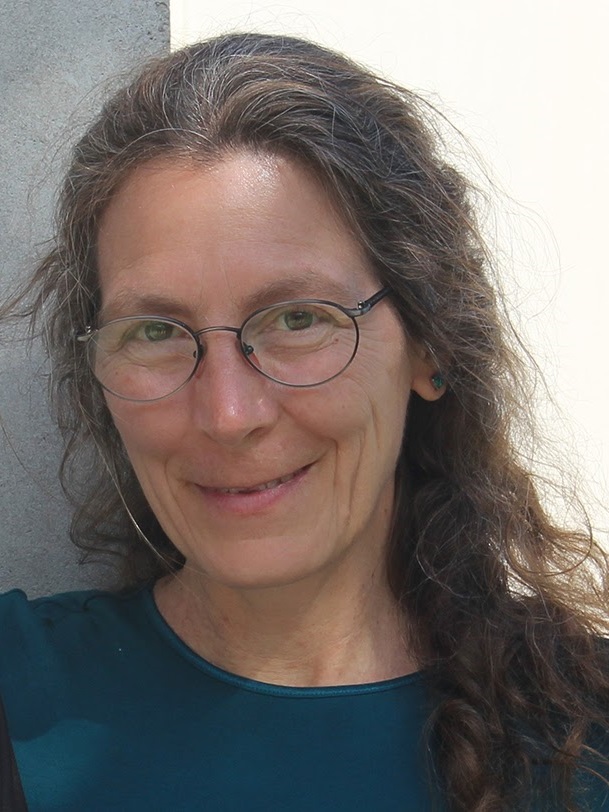 Victoria Interrante is a Full Professor in the Department of Computer Science and Engineering at the University of Minnesota and Director of the University-wide Center for Cognitive Sciences. Professor Interrante has a 20-year history of involvement in VR research, focusing primarily on efforts related to the application of insights from visual perception and cognition. She is currently serving on the steering committee of the international IEEE VR conference and as co-editor-in-chief of the ACM Transactions on Applied Perception. She is the recipient of the IEEE VGTC Career Award in 2020.
Victoria Interrante is a Full Professor in the Department of Computer Science and Engineering at the University of Minnesota and Director of the University-wide Center for Cognitive Sciences. Professor Interrante has a 20-year history of involvement in VR research, focusing primarily on efforts related to the application of insights from visual perception and cognition. She is currently serving on the steering committee of the international IEEE VR conference and as co-editor-in-chief of the ACM Transactions on Applied Perception. She is the recipient of the IEEE VGTC Career Award in 2020.
Website
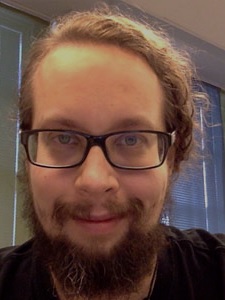 Matti Pouke is a postdoctoral researcher in the Perception Engineering (PE) research group at the Center for Ubiquitous Computing, University of Oulu, Finland. In his doctoral research he studied the transformation and visualization of real human activity in virtual environments. Since then he has been involved in many research and development projects involving the use of virtual environments in public urban contexts, including smart buildings, architectural visualizations, and libraries. His current research focuses on human perception in multi-scale virtual reality experiences as well as Presence and Plausibility. He is a member of ACM and IEEE.
Matti Pouke is a postdoctoral researcher in the Perception Engineering (PE) research group at the Center for Ubiquitous Computing, University of Oulu, Finland. In his doctoral research he studied the transformation and visualization of real human activity in virtual environments. Since then he has been involved in many research and development projects involving the use of virtual environments in public urban contexts, including smart buildings, architectural visualizations, and libraries. His current research focuses on human perception in multi-scale virtual reality experiences as well as Presence and Plausibility. He is a member of ACM and IEEE.
Website
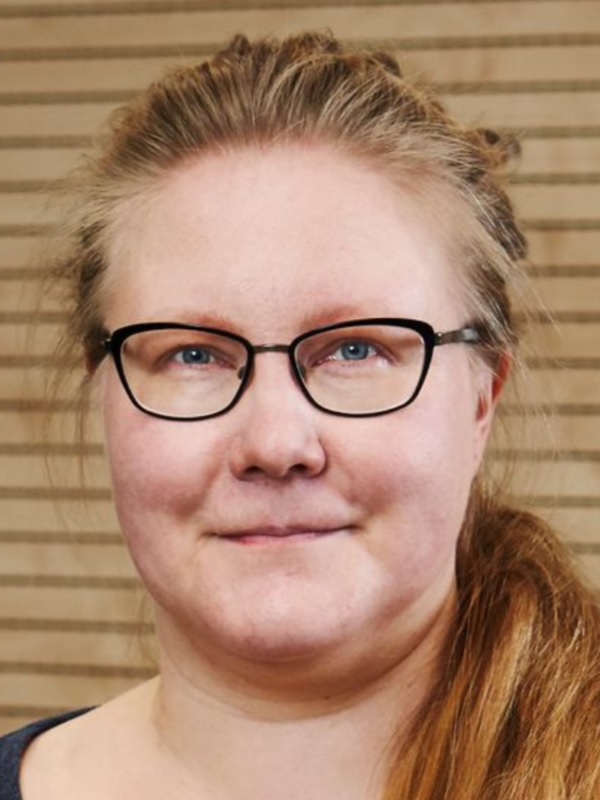 Paula Alavesa is a postdoctoral researcher in the Perception Engineering (PE) research and Cyber Security and Informatics (CSI) groups at the Center for Ubiquitous Computing, University of Oulu, Finland. Her doctoral thesis (2018) focused on playful appropriations of hybrid spaces where virtual and physical environments were combined into urban pervasive games. She has several years of experience in applied constructive research with location-based, augmented, and virtual reality technologies. Her current research continues the overarching theme of combining digital and physical realms using XR technologies and games or gamification approach as the mediator. She is a member of IEEE, ACM, SIGCHI and Digital Games Research Association (DiGRA).
Paula Alavesa is a postdoctoral researcher in the Perception Engineering (PE) research and Cyber Security and Informatics (CSI) groups at the Center for Ubiquitous Computing, University of Oulu, Finland. Her doctoral thesis (2018) focused on playful appropriations of hybrid spaces where virtual and physical environments were combined into urban pervasive games. She has several years of experience in applied constructive research with location-based, augmented, and virtual reality technologies. Her current research continues the overarching theme of combining digital and physical realms using XR technologies and games or gamification approach as the mediator. She is a member of IEEE, ACM, SIGCHI and Digital Games Research Association (DiGRA).
Website
Workshop B: SMART INTERNET OF THINGS (IOT) WIRELESS CONNECTIVITY IN 5G AND BEYOND
The Internet of Things (IoT) identifies the network of interconnected systems, involving sensors and actuators that communicate and collaborate without human intervention. IoT connectivity has significantly different requirements and traffic characteristics from traditional human-to-machine (H2M) services (download, web browsing, video streaming) and human-to-human (H2H) communication as IoT communication is oftentimes characterized by the intermittent transmission/reception of small data portions. Furthermore, due to the interaction between sensors and actuators, numerous IoT applications present strict latency, reliability, and energy efficiency requirements. Thus, adequate access mechanisms must be developed based on the traffic characteristics of IoT applications to efficiently fulfill their requirements. Recent standardization efforts led to the development of the narrowband Internet of Things (NB-IoT), the low-power wide-area implementation in cellular base stations. NB-IoT has positioned itself as the major player in the IoT sector due to its greater transmission range and longer battery lifetime with respect to other IoT technologies. However, the current IoT technologies only provide a set of generic access mechanisms that are oblivious to the ultimate goal of the communication process and, consequently, to the real timing requirements of the application. This workshop focuses on the interplay between the data generation process, the access mechanisms, and the content of the data and their relevance for the objective of the application.
In summary, this workshop includes:
- Use cases and performance requirements for IoT applications,
- Theoretical aspects and fundamentals of wireless communications for the IoT,
- Timing metrics for IoT applications,
- Basics of machine learning and data analytics for the IoT,
- 5G and NB-IoT access protocols,
- Non-terrestrial networks for the IoT,
- Joint project discussion and planning,
- Hands-on sessions to program the NB-IoT devices and setup the applications.
The participants will learn:
- The theoretical basis and design principles of wireless communication protocols and IoT architectures,
- How to program and implement an IoT application with real cellular IoT devices,
- How to use data-driven methods to maximize the efficiency of IoT applications.
To get the most out of the workshop, basic knowledge on wireless communications and programming languages is encouraged.
Maximum number of participants to be enrolled to the workshop: 24
Instructors:
Professor Petar Popovski, Aalborg University, Denmark
Assistant Professor Israel Leyva-Mayorga, Aalborg University, Denmark
Dr. Shashi Raj Pandey, Aalborg University, Denmark
Website
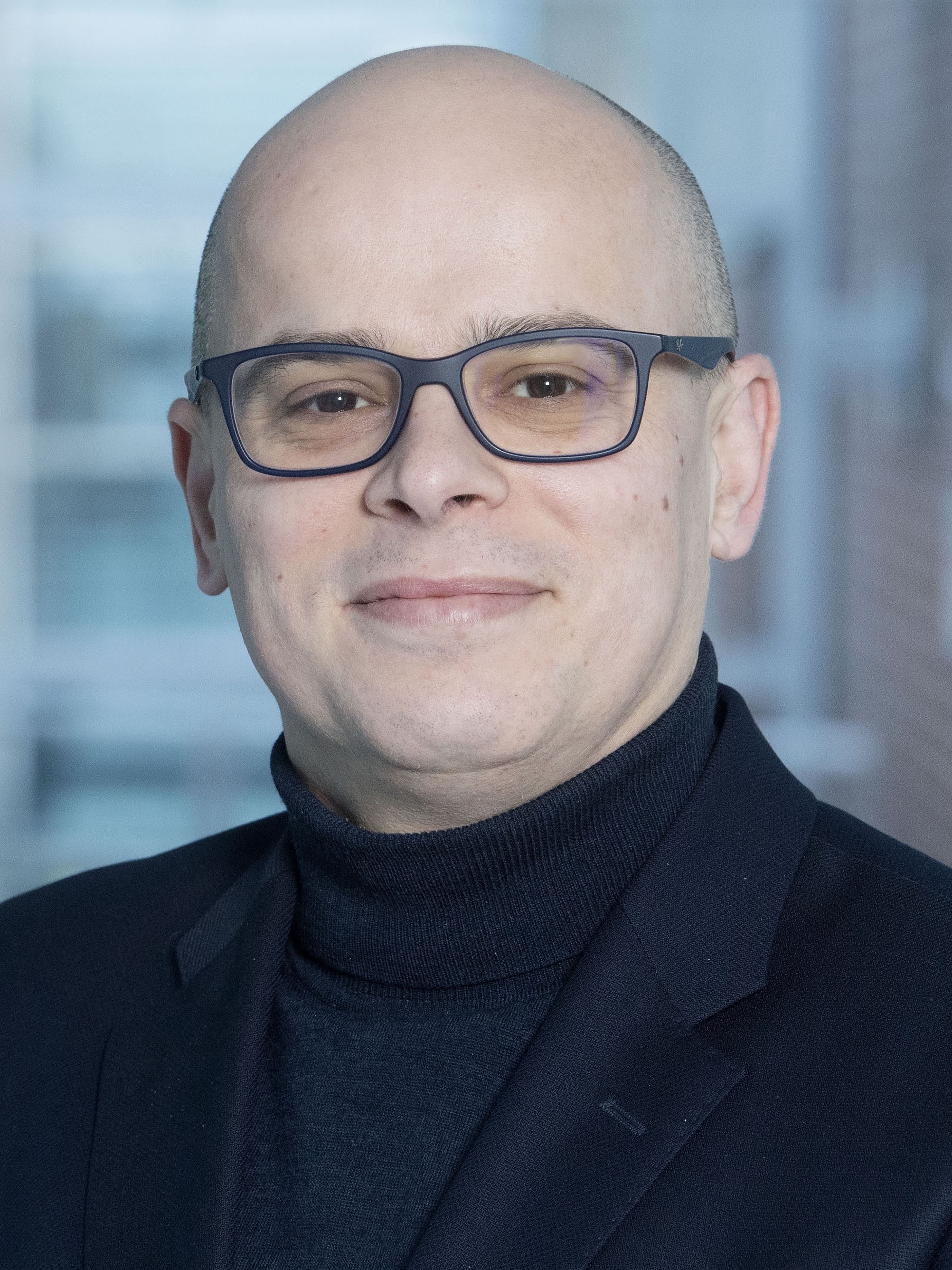 Petar Popovski is a Professor at Aalborg University, where he heads the section on Connectivity and a Visiting Excellence Chair at the University of Bremen. He received his Dipl.-Ing and M. Sc. degrees in communication engineering from the University of Sts. Cyril and Methodius in Skopje and the Ph.D. degree from Aalborg University in 2005. He is a Fellow of the IEEE. He received an ERC Consolidator Grant (2015), the Danish Elite Researcher award (2016), IEEE Fred W. Ellersick prize (2016), IEEE Stephen O. Rice prize (2018), Technical Achievement Award from the IEEE Technical Committee on Smart Grid Communications (2019), the Danish Telecommunication Prize (2020) and Villum Investigator Grant (2021). He is currently the Editor-in-Chief of IEEE JOURNAL ON SELECTED AREAS IN COMMUNICATIONS. Prof. Popovski was the General Chair for IEEE SmartGridComm 2018 and IEEE Communication Theory Workshop 2019. His research interests are in communication theory and wireless connectivity. He authored the book “Wireless Connectivity: An Intuitive and Fundamental Guide”, published by Wiley in 2020.
Petar Popovski is a Professor at Aalborg University, where he heads the section on Connectivity and a Visiting Excellence Chair at the University of Bremen. He received his Dipl.-Ing and M. Sc. degrees in communication engineering from the University of Sts. Cyril and Methodius in Skopje and the Ph.D. degree from Aalborg University in 2005. He is a Fellow of the IEEE. He received an ERC Consolidator Grant (2015), the Danish Elite Researcher award (2016), IEEE Fred W. Ellersick prize (2016), IEEE Stephen O. Rice prize (2018), Technical Achievement Award from the IEEE Technical Committee on Smart Grid Communications (2019), the Danish Telecommunication Prize (2020) and Villum Investigator Grant (2021). He is currently the Editor-in-Chief of IEEE JOURNAL ON SELECTED AREAS IN COMMUNICATIONS. Prof. Popovski was the General Chair for IEEE SmartGridComm 2018 and IEEE Communication Theory Workshop 2019. His research interests are in communication theory and wireless connectivity. He authored the book “Wireless Connectivity: An Intuitive and Fundamental Guide”, published by Wiley in 2020.
Google Scholar
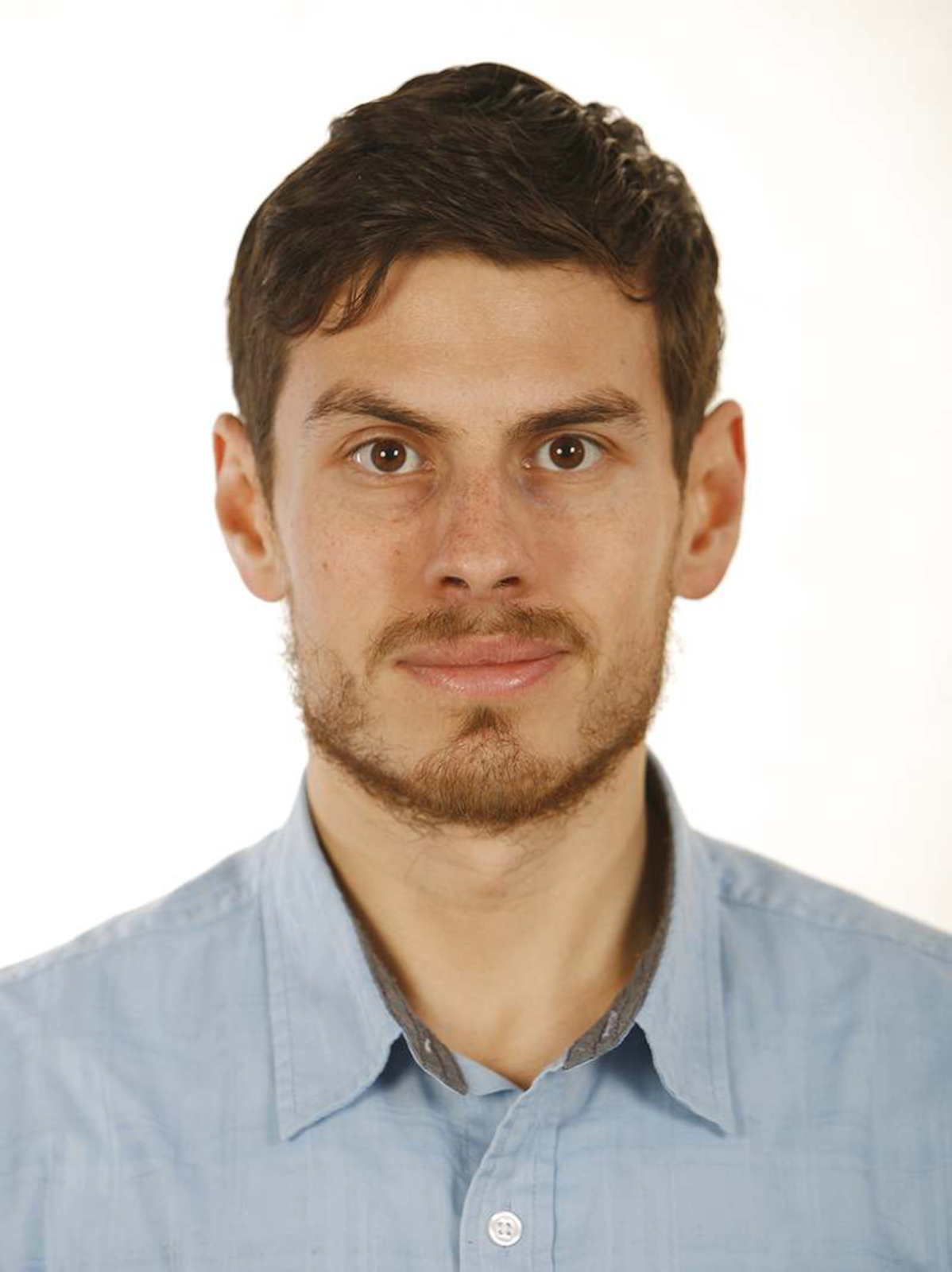 Israel Leyva-Mayorga is an Assistant Professor at the Connectivity Section (CNT) of the Department of Electronic Systems, Aalborg University (AAU), Denmark. He received the B.Sc. degree in telematics engineering and the M.Sc. degree (Hons.) in mobile computing systems from the Instituto Politécnico Nacional (IPN), Mexico, in 2012 and 2014, respectively, and the Ph.D. in telecommunications (Cum laude) from the Universitat Politècnica de València (UPV), Spain, in 2018. He was a visiting researcher at the Department of Communications of the UPV in 2014 and at the Deutsche Telekom Chair of Communication Networks, Technische Universität Dresden, Germany, in 2018 and a Postdoctoral Researcher at AAU from January 2019 to July 2021. He has authored more than 40 peer-reviewed research papers in the areas of satellite communications, massive machine-type communications (mMTC), edge computing, and random and multiple access protocols. He serves as Associate Editor for IEEE Wireless Communications Letters, Board Member for one6G association, and representative of AAU in 6G IA SNS.
Israel Leyva-Mayorga is an Assistant Professor at the Connectivity Section (CNT) of the Department of Electronic Systems, Aalborg University (AAU), Denmark. He received the B.Sc. degree in telematics engineering and the M.Sc. degree (Hons.) in mobile computing systems from the Instituto Politécnico Nacional (IPN), Mexico, in 2012 and 2014, respectively, and the Ph.D. in telecommunications (Cum laude) from the Universitat Politècnica de València (UPV), Spain, in 2018. He was a visiting researcher at the Department of Communications of the UPV in 2014 and at the Deutsche Telekom Chair of Communication Networks, Technische Universität Dresden, Germany, in 2018 and a Postdoctoral Researcher at AAU from January 2019 to July 2021. He has authored more than 40 peer-reviewed research papers in the areas of satellite communications, massive machine-type communications (mMTC), edge computing, and random and multiple access protocols. He serves as Associate Editor for IEEE Wireless Communications Letters, Board Member for one6G association, and representative of AAU in 6G IA SNS.
Google Scholar
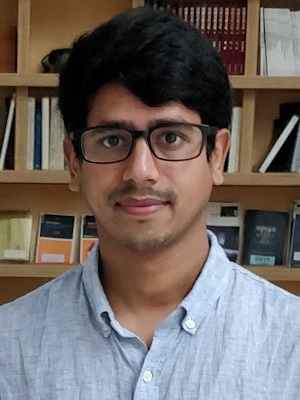 Shashi Raj Panday is a Postdoctoral Researcher at the Connectivity Section (CNT), Department of Electronic Systems, Aalborg University. He is also an affiliated member at the Pioneer Center for AI, Denmark. He received his B.E. degree in Electrical and Electronics with a specialization in Communication from Kathmandu University, Nepal, and the Ph.D. degree in Computer Science and Engineering from Kyung Hee University, Seoul, South Korea. He served as a Network Engineer at Huawei Technologies Nepal Co. Pvt. Ltd, Nepal from 2013 to 2016. His research interests include network economics, game theory, wireless communications and networking, distributed machine learning and semantic communications. He was a Member at Large at the IEEE Communication Society Young Professionals 2020 — 2021. He currently serves as a Member at Large in the IEEE Communication Society On-Line Content Board and is in the editorial advisory board of IEEE Spectrum’s The Institute 2022 — 2024.
Shashi Raj Panday is a Postdoctoral Researcher at the Connectivity Section (CNT), Department of Electronic Systems, Aalborg University. He is also an affiliated member at the Pioneer Center for AI, Denmark. He received his B.E. degree in Electrical and Electronics with a specialization in Communication from Kathmandu University, Nepal, and the Ph.D. degree in Computer Science and Engineering from Kyung Hee University, Seoul, South Korea. He served as a Network Engineer at Huawei Technologies Nepal Co. Pvt. Ltd, Nepal from 2013 to 2016. His research interests include network economics, game theory, wireless communications and networking, distributed machine learning and semantic communications. He was a Member at Large at the IEEE Communication Society Young Professionals 2020 — 2021. He currently serves as a Member at Large in the IEEE Communication Society On-Line Content Board and is in the editorial advisory board of IEEE Spectrum’s The Institute 2022 — 2024.
Google Scholar
Workshop C: THE MIND ELECTRIFIED: EEG/ERP IN THE LAB AND IN THE WILD
Trying to determine what people are perceiving, paying attention to, understanding, remembering, feeling, and planning is a central part of many education, health, business, and industry applications. Yet these are hidden states, and our ability to infer them from overt behaviors and people’s self-reports is limited. For several decades now, scientists have used non-invasive laboratory-based recordings of brain electrical activity – the electroencephalogram (EEG) – to study cognitive and emotional processing, yielding a rich understanding of how these processes manifest in brain activity. In particular, Event-Related Potentials (ERPs), EEG signals that are temporally synchronized with the presentation of sensory stimuli and/or behavioral responses, provide functionally specific indices of many, otherwise hidden, mental processes and states. More recently, technological developments have allowed the measurement of EEG to move out of the laboratory and “into the wild” – to be done in homes, classrooms, performance venues and even outdoors, and to record data while people are moving around and engaged in real world activities. In parallel, analytical approaches have been developed to extract information from the much noisier signals created in these contexts and, more generally, to examine other aspects of the EEG signal, including changes in brain oscillatory patterns. This unleashes exciting new opportunities to monitor, understand, and even augment our own and others’ cognitive and emotional functioning.
In this workshop, you will gain theoretical and practical experience with the use of EEG and ERPs to study cognition, both in a laboratory and real-world context. Lecture material will overview the physiological basis of the signal, technological and design considerations for the use of EEG/ERPs, and measurement and inference-drawing from electrophysiological signals. You will also develop an “ERP toolkit” – strategies for using these measures to assess a wide range of processes critical for perception, attention, memory, language, decision-making, and response planning. Much of the workshop will be hands-on: You will have the opportunity to collect EEG data in a laboratory setting and with a mobile EEG headset, and you will learn how to clean and analyze data and extract ERP and oscillatory measures. By the end of the week, you will be able to develop and present a proposal/pitch for a novel use of EEG to answer a basic science or applied question.
We welcome participants from different areas of expertise, including neuroscience, psychology, and computer science, among others. No previous experience with EEG is required. Analyses will be done using Matlab-based platforms, so you should have prior experience with Matlab or more general experience manipulating large data sets in other programming environments.
Maximum number of participants to be enrolled to the workshop: 16
Instructors:
Professor Kara D. Federmeier, UIUC, USA
Dr. Evan G. Center, University of Oulu, Finland
Dr. Ryan J. Hubbard, UIUC, USA
Dr. Melissa Troyer, UIUC, USA
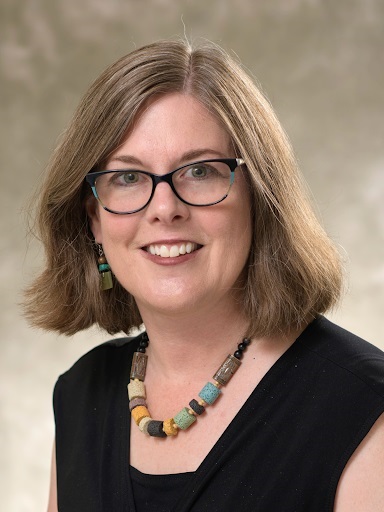 Kara D. Federmeier received her Ph.D. in Cognitive Science from the University of California, San Diego. She is a Professor in the Department of Psychology and the Neuroscience Program at the University of Illinois and a full-time faculty member at the Beckman Institute for Advanced Science and Technology, where she co-leads the Illinois Language and Literacy Initiative and heads the Cognition and Brain Lab. She also has served as the President of the Society for Psychophysiological Research. Her research, supported by the National Institute on Aging, examines meaning comprehension and memory across adulthood, using human electrophysiological techniques in combination with behavioral, eyetracking, and other functional imaging and psychophysiological methods.
Kara D. Federmeier received her Ph.D. in Cognitive Science from the University of California, San Diego. She is a Professor in the Department of Psychology and the Neuroscience Program at the University of Illinois and a full-time faculty member at the Beckman Institute for Advanced Science and Technology, where she co-leads the Illinois Language and Literacy Initiative and heads the Cognition and Brain Lab. She also has served as the President of the Society for Psychophysiological Research. Her research, supported by the National Institute on Aging, examines meaning comprehension and memory across adulthood, using human electrophysiological techniques in combination with behavioral, eyetracking, and other functional imaging and psychophysiological methods.
Website
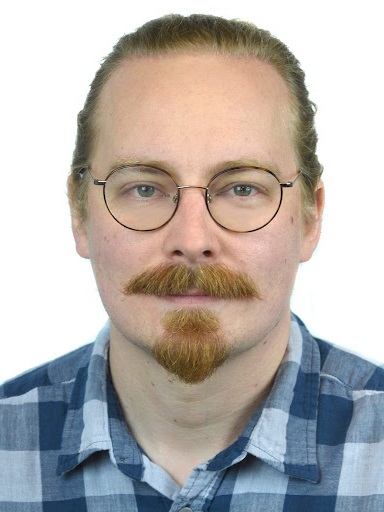 Evan G. Center received his PhD in cognitive neuroscience from the University of Illinois in 2020, where his thesis focused on the ways in which our expectations and prior experiences can affect our ongoing perception of the world in the moment. His research uses EEG and behavioral techniques in combination with virtual reality (VR) to understand the dynamics of our perceptual experiences. At the University of Oulu, he looks to leverage the power of VR to bring new realism to old paradigms and address ongoing challenges, such as reducing cybersickness and increasing presence in virtual environments.
Evan G. Center received his PhD in cognitive neuroscience from the University of Illinois in 2020, where his thesis focused on the ways in which our expectations and prior experiences can affect our ongoing perception of the world in the moment. His research uses EEG and behavioral techniques in combination with virtual reality (VR) to understand the dynamics of our perceptual experiences. At the University of Oulu, he looks to leverage the power of VR to bring new realism to old paradigms and address ongoing challenges, such as reducing cybersickness and increasing presence in virtual environments.
Website
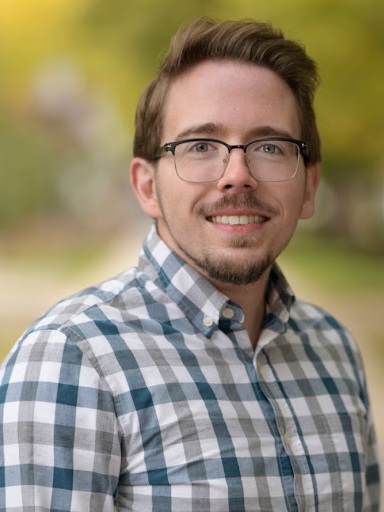 Ryan J. Hubbard received his PhD in cognitive neuroscience from the University of Illinois in 2017 with Dr. Kara Federmeier. During his graduate training, he worked as a research specialist at the Thomas J. Watson Research Center, IBM Research, where he combined EEG recordings with psychological experiments in a virtual reality (VR) setting. Following completion of his PhD, Ryan worked as a Postdoctoral Research Scientist at the Information and System Sciences Lab at HRL Laboratories, using his EEG analysis and machine learning expertise to examine memory consolidation during sleep. Afterwards, Ryan returned to UIUC as a Beckman Institute Postdoctoral Fellow, and is currently a Postdoctoral Research Associate on an NIA grant examining the impact of aging on language and memory. His research on prediction, language, and memory incorporates advanced electrophysiological analyses, including time-frequency and multivariate decoding analyses.
Ryan J. Hubbard received his PhD in cognitive neuroscience from the University of Illinois in 2017 with Dr. Kara Federmeier. During his graduate training, he worked as a research specialist at the Thomas J. Watson Research Center, IBM Research, where he combined EEG recordings with psychological experiments in a virtual reality (VR) setting. Following completion of his PhD, Ryan worked as a Postdoctoral Research Scientist at the Information and System Sciences Lab at HRL Laboratories, using his EEG analysis and machine learning expertise to examine memory consolidation during sleep. Afterwards, Ryan returned to UIUC as a Beckman Institute Postdoctoral Fellow, and is currently a Postdoctoral Research Associate on an NIA grant examining the impact of aging on language and memory. His research on prediction, language, and memory incorporates advanced electrophysiological analyses, including time-frequency and multivariate decoding analyses.
Website
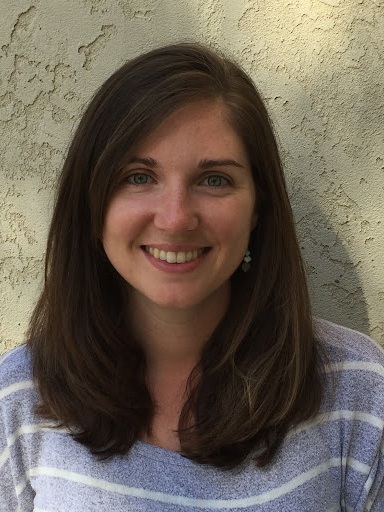 Melissa Troyer received her PhD in Cognitive Science from the University of California, San Diego in 2019 and completed a BrainsCAN postdoctoral fellowship at the University of Western Ontario in 2021. She is currently a Beckman Institute Postdoctoral Fellow and member of the Cognition and Brain Lab at the University of Illinois at Urbana-Champaign, where she collaborates with Dr. Kara Federmeier and Dr. Elizabeth Stine-Morrow. Melissa uses electrophysiology and behavior to study how variation in what people know relates to how they anticipate, make sense of, and (potentially) learn from language in real time. She is also interested in how variation in knowledge and natural aging combine to shape these processes during language comprehension, across the lifespan.
Melissa Troyer received her PhD in Cognitive Science from the University of California, San Diego in 2019 and completed a BrainsCAN postdoctoral fellowship at the University of Western Ontario in 2021. She is currently a Beckman Institute Postdoctoral Fellow and member of the Cognition and Brain Lab at the University of Illinois at Urbana-Champaign, where she collaborates with Dr. Kara Federmeier and Dr. Elizabeth Stine-Morrow. Melissa uses electrophysiology and behavior to study how variation in what people know relates to how they anticipate, make sense of, and (potentially) learn from language in real time. She is also interested in how variation in knowledge and natural aging combine to shape these processes during language comprehension, across the lifespan.
Website
